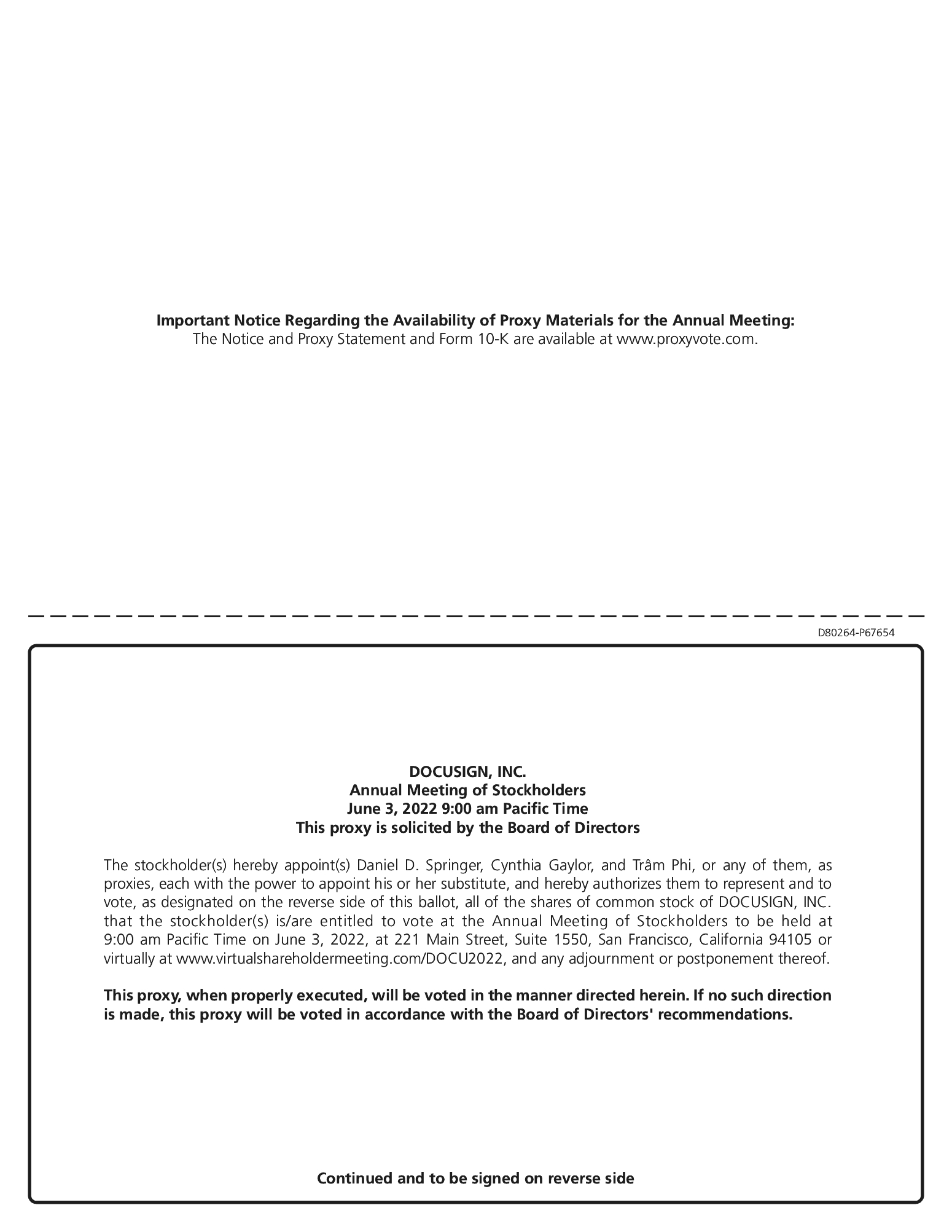PricewaterhouseCoopers LLP as our independent registered public accounting firm for the fiscal year ending January 31, 2023, and “For” the advisory vote on our named executive officers’ compensation. If any other matter is properly presented at the meeting, your proxyholder (one of the individuals named on your proxy card) will vote your shares using his or her best judgment.
If I am a beneficial owner of shares held in street name and I do not provide my broker or bank with voting instructions, what happens?
Broker non-votes occur when shares held by a broker for a beneficial owner are not voted either because (i) the broker did not receive voting instructions from the beneficial owner or (ii) the broker lacked discretionary authority to vote the shares. Abstentions represent a stockholder’s affirmative choice to decline to vote on a proposal, and occur when shares present at the meeting are marked “abstain.” Broker non-votes and abstentions are counted for purposes of determining whether a quorum is present. Broker non-votes have no effect on the outcome of matters voted. Abstentions have no effect on the outcome of matters voted (except for Proposals 2 and 3, for which an abstention counts as an ‘Against’ vote, as noted in the above).
A broker has discretionary authority to vote shares held for a beneficial owner on “routine” matters without instructions from the beneficial owner of those shares. On the other hand, absent instructions from the beneficial owner of such shares, a broker is not entitled to vote shares held for a beneficial owner on “non-routine” matters.
Proposal 1, the election of our Class I directors, and Proposal 3, the advisory vote on our named executive officers’ compensation, are non-routine matters, so your broker or nominee may not vote your shares on Proposal 1 or Proposal 3 without your instructions. Proposal 2, the ratification of PricewaterhouseCoopers LLP as our independent registered public accounting firm for the fiscal year ending January 31, 2023, is a routine matter, so your broker or nominee may vote your shares on Proposal 2 even in the absence of your instruction.
If you are a beneficial owner of shares held in street name, in order to ensure your shares are voted in the way you would prefer, you must provide voting instructions to your broker, bank or other agent by the deadline provided in the materials you receive from your broker, bank or other agent.
Who is paying for this proxy solicitation?
DocuSign will pay for the entire cost of soliciting proxies. In addition to these proxy materials, our directors and employees may also solicit proxies in person, by telephone or by other means of communication. Directors and employees will not be paid any additional compensation for soliciting proxies. We will also reimburse brokerage firms, banks and other agents for the cost of forwarding proxy materials to beneficial owners.
What does it mean if I receive more than one Notice?
If you receive more than one Notice, your shares may be registered in more than one name or in different accounts. Please follow the voting instructions on the Notices to ensure that all of your shares are voted.
Can I change my vote after submitting my proxy?
Stockholder of Record: Shares Registered in Your Name
Yes. You can revoke your proxy at any time before the final vote at the meeting. If you are the record holder of your shares, you may revoke your proxy in any one of the following ways:
1.
| You may submit another properly completed proxy card with a later date. |
2.
| You may grant a subsequent proxy by telephone or through the Internet. |
3.
| You may send a timely written notice that you are revoking your proxy to DocuSign’s Corporate Secretary at 221 Main Street, Suite 1550, San Francisco, California 94105. |
4.
| You may attend the Annual Meeting and vote. Simply attending the meeting will not, by itself, revoke your proxy. |
Your most current proxy card or telephone or Internet proxy is the one that is counted.
Beneficial Owner: Shares Registered in the Name of Broker or Bank
If your shares are held by your broker, bank or other agent, you should follow the instructions provided by your broker, bank or other agent.





















